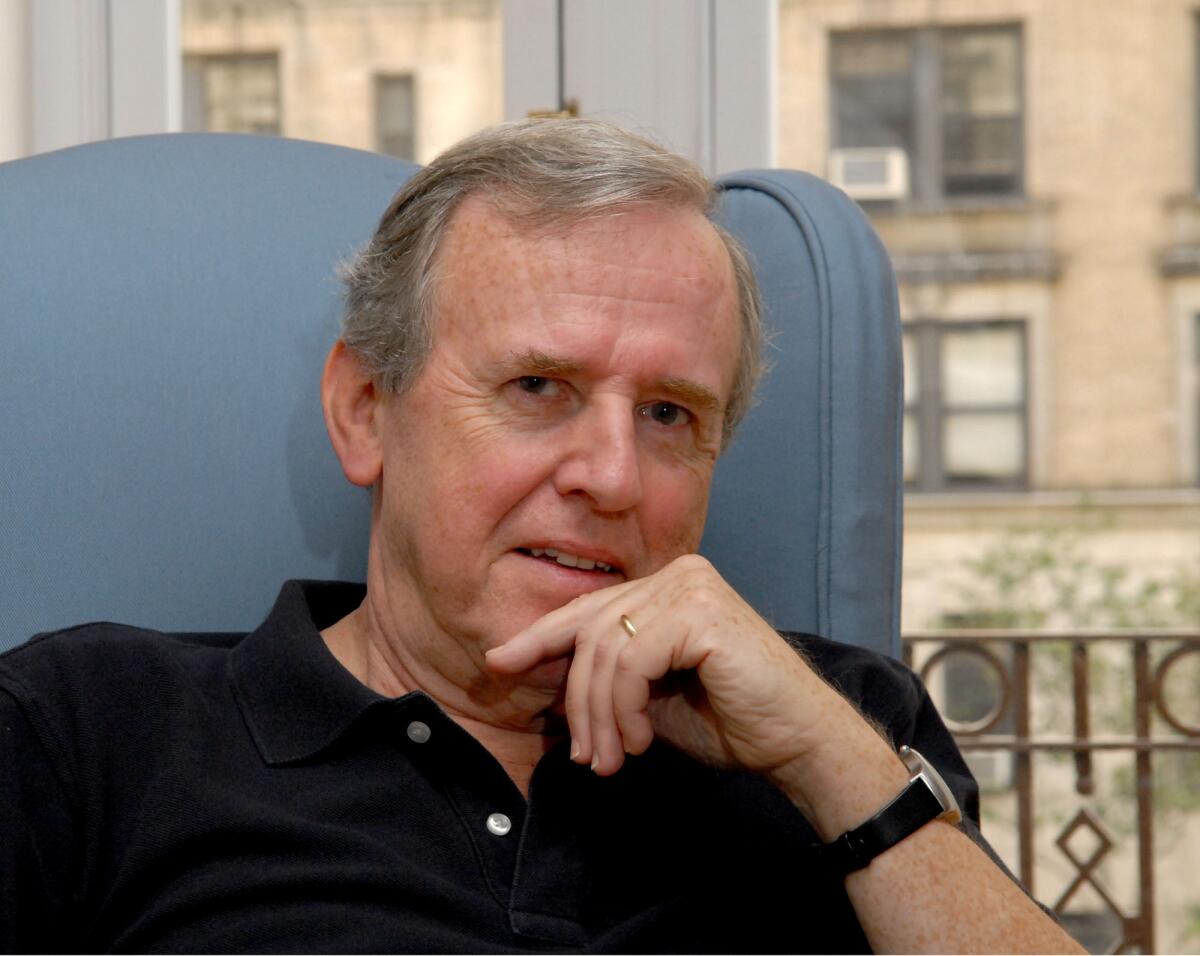Thomas Cahill, historian who wrote ‘How the Irish Saved Civilization,’ dies at 82

- Share via
NEW YORK — Thomas Cahill, a scholar of ancient languages and belief systems who had a knack for popular storytelling and engaged readers with such bestsellers as “How the Irish Saved Civilization” and “Desire of the Everlasting Hills,” has died. He was 82.
Travis Loller, a family friend and Associated Press writer, says Cahill died in his sleep Oct. 18 at his apartment in Manhattan. The cause of death was not immediately known.
A contributor to the Los Angeles Times Book Review, Cahill attended Jesuit school in his early years and became a dedicated student of Latin and Ancient Greek, along with the Bible, philosophy and classical literature. Cahill wrote two books with his wife, Susan Cahill, in the early 1970s. But he gained a wide audience in the mid-1990s with the million-selling “How the Irish Saved Civilization,” in which he cited Ireland’s crucial — and unappreciated — preservation of classical texts after the fall of the Roman Empire.
“Mr. Cahill is a man of learning himself, and his writing is in the great Irish tradition he describes: lyrical, playful, penetrating and serious, but never too serious,” New York Times critic Richard Bernstein wrote in 1995. “And even when his conclusions are not entirely persuasive — they do in places hang on rather slender reeds of evidence — they are always plausible and certainly interesting.”
His book on Ireland formed part of what he called his “Hinges of History” series, a broad and idiosyncratic review of Western civilization and moments he believed were turning points, “a narration of how we became the people that we are,” as he told the AP in a 2006 interview.
“Desire of the Everlasting Hills” focused on the New Testament and the life of Jesus, and “Sailing the Wine Dark Sea” celebrated the ancient Greeks. In “Mysteries of the Middle Ages,” he countered popular beliefs that the medieval period was merely a time of superstition.
The Aeneid Virgil Translated by Robert Fagles with an introduction by Bernard Knox Viking: 486 pp., $40
“Of course, there was plenty of ignorance, as there is in every age,” he told the AP in 2006. “But the advances we associate with the Renaissance in the arts, sciences, education, scholarship, linguistics and even political experimentation all got under way in the Middle Ages.”
Besides writing history, Cahill was an education correspondent for the Times of London. He taught at Queens College, Fordham University and Seton Hall University, and served for several years as director of religious publishing at Doubleday, which released much of his work, most recently the 2013 book “Heretics and Heroes.”
A New York City native, Cahill majored in classical literature and medieval philosophy at Fordham University and received a master’s degree in film and dramatic literature from Columbia University. But his approach to his books was shaped in part by his Jesuit background, by the depth of his learning and the dullness of how he learned it. He would later resolve to combine scholarly discipline with a conversational tone.
“What academic writers forget is that everyone on Earth buys books for diversion or entertainment,” he said in 2006. “Yes, they want to learn things, but they also don’t want to be bored to death while they learn those things.”
More to Read
Start your day right
Sign up for Essential California for the L.A. Times biggest news, features and recommendations in your inbox six days a week.
You may occasionally receive promotional content from the Los Angeles Times.





